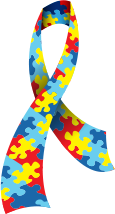

Services
ASSESSMENT
An assessment is the first step to differentially diagnose a speech and language disorder; the assessment helps the family understand if there is a delay, disorder or language difference if any. The assessment will guide the clinician to determine the diagnosis, the severity of the impairment, the number of sessions per week, and the goals for therapy.
Assessment procedures are chosen based on an individual’s age and the nature of their disorder. All assessments include clinical observations, standardized and non-standardized evaluation tools. The initial assessment takes between 1-1 ½ hours and can be divided into two sessions if needed (depending on the patient and severity of the disorder). After the assessment, the data is analyzed, a diagnosis is formulated and a report is written with the appropriate recommendations.
Types of Assessments Available
- Private assessments
- Insurance Assessments
- Bilingual Assessments
- School District Assessments (IEE)
- Regional Center Assessments
Therapy
Early Intervention:
Therapy for young children birth to three years of age includes floor time, language stimulation techniques and parent education and training. Therapy is provided in a natural environment during play. Children learn during play activities. The clinician models, expands, repeats, and demonstrates during play.
School Age:
Treatment for school age children includes a wide range of speech and language activities including: parent training, handouts, language based games, music, art, play, game boards, computer games, Apps, and literature.
Adults:
Adult clients are treated for a variety of disorders including aphasia, cognition, dysarthria, apraxia and dysphagia. The goal is to increase independence with communicating and/or swallowing. The clinician achieves this by doing a variety of cognitive linguistic techniques that are specific to each individual.
Telepractice Service:
Live too far, can’t drive, or too busy for face-to-face therapy, then therapy via telecommunication is a perfect option i.e. Skype, Facetime. “Telepractice service” means the application of telecommunication technology equivalent in quality to services delivered face-to-face to deliver speech-language pathology, at a distance for assessment, intervention or consultation, or both.
THERAPY SESSIONS
Speech and language therapy sessions are typically 30 minutes in duration and the sessions per week depends on the severity of the disorder. The duration of treatment depends on the severity of the disorder, the age of the client and associated physical, emotional and social factors.
INFANT PROGRAMS
First Step Early Intervention, Inc. (FSEI) is an in home developmental program. We provide developmental intervention to children 0-5 years of age who are described as being developmentally delayed with their milestones or for children whose parents seek infant stimulation. The primary role of the child’s developmental specialist (infant teacher) is to teach the child skills through a variety of play routines. The infant teacher provides the services in the child’s home. It consists of play based intervention, parent training, hands on educational stimulation, assessing and monitoring skills in all areas of development (cognition, receptive language, expressive language, social skills, fine motor and gross motor.)
HANEN PARENT TRAINING
Hanen Parent Training “It Takes Two to Talk” is offered in a group environment to train families on how to communicate effectively with a speech-language delayed child. Norma Lopez, M.S., CCC-SLP is Hanen certified. Please read about the program at www.hanen.org and contact Mi Sueno Speech Therapy if you are interested in participating in a group or have related questions.

